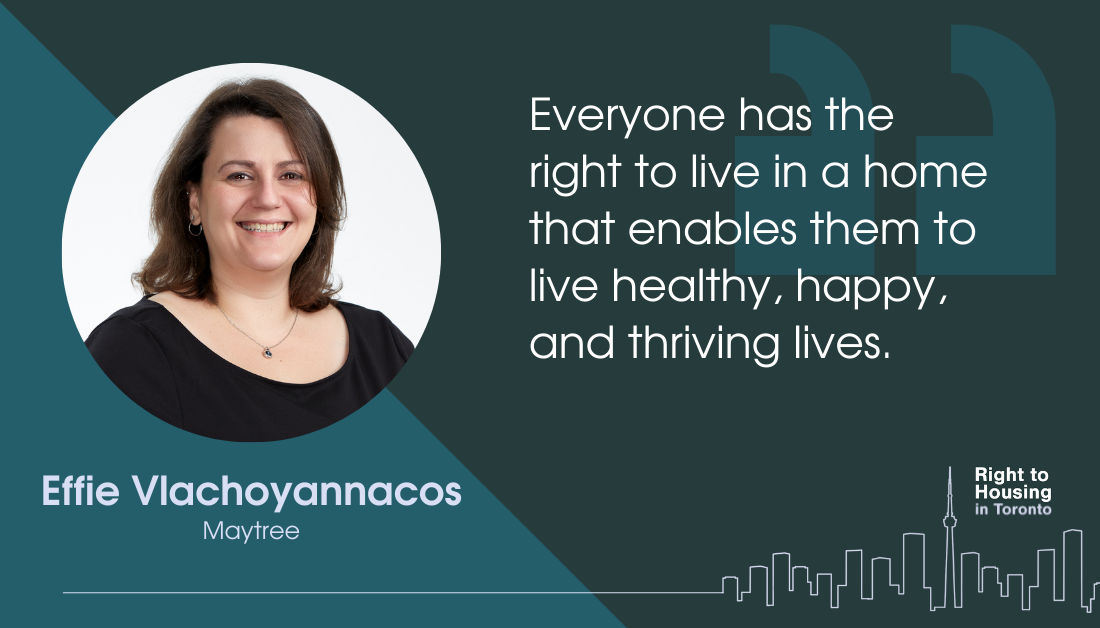What does the right to housing mean to you?
Everyone has the right to live in a home that enables them to live healthy, happy, and thriving lives. However, far too many in this prosperous city – particularly Indigenous, Black, and other people of colour (BIPOC), as well as people with disabilities and those who are unhoused – are kept out of particular housing and neighbourhoods because they are told implicitly (and explicitly) that they don’t fit in.
Recognizing the human right to housing creates a new standard for housing planning, programs, and services that takes action on the idea of “deserving” versus “undeserving.” It places equity at the centre and prioritizes people who often face the greatest challenges in accessing adequate housing. The human right to housing not only means that everyone can live in a home in good repair that they can afford, but it also ensures that it is accessible, culturally appropriate, and located in communities that have the services and supports that people need to live. It ensures that there are tailored housing options available for people who are often marginalized by our housing systems and can access the housing they need, including BIPOC, 2SLGBTQ+ youth, women fleeing domestic violence, and people with disabilities.
What is the #1 thing that Toronto City Council must do to advance the right to housing this year?
The City of Toronto has taken the first step in advancing the human right to housing by committing to a rights-based ten-year housing and homelessness plan. It now needs to establish the necessary infrastructure to fulfill this commitment. City policy-makers will need to embed the right to housing in their policies, procedures, and processes, and make housing decisions based on human rights principles, not the opportunities or constraints of the political moment. It will require the active and ongoing engagement of people and communities that are disproportionately affected by poverty, including BIPOC, 2SLGBTQ+ people, women, people with disabilities, seniors, newcomers, refugee claimants, and precarious migrants. Ultimately, it will require independent accountability mechanisms that monitor, enforce, and support the ongoing implementation of the human right to housing.

